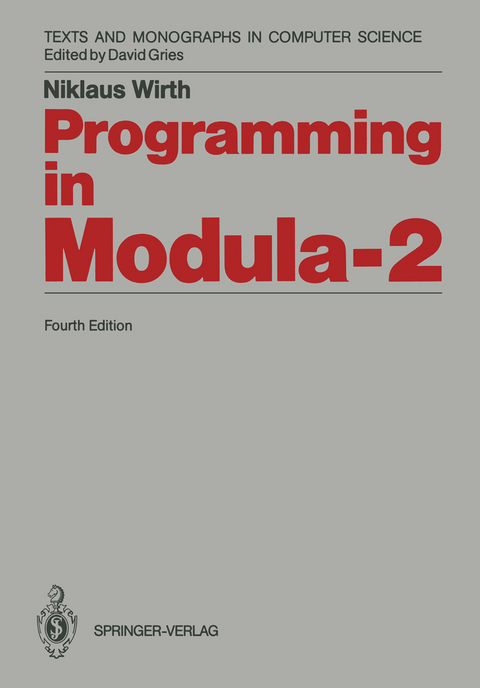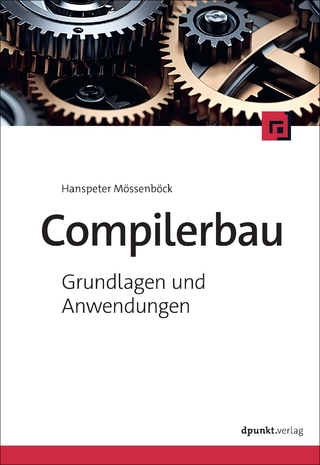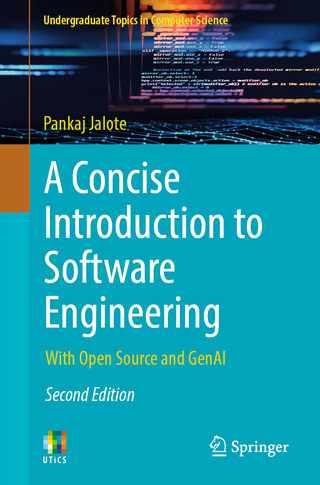
Programming in Modula-2
Springer Berlin (Verlag)
978-3-642-83567-4 (ISBN)
1 Introduction.- 2 A First Example.- 3 A Notation to Describe the Syntax of Modula.- 4 Representation of Modula Programs.- 5 Statements and Expressions.- 6 Control Structures.- 7 Elementary Data Types.- 8 Constant and Variable Declarations.- 9 The Data Structure Array.- 10 Procedures.- 11 The Concept of Locality.- 12 Parameters.- 13 Function Procedures.- 14 Recursion.- 15 Type Declarations.- 16 Enumeration Types.- 17 Subrange Types.- 18 Set Types.- 19 Record Types.- 20 Records with Variant Parts.- 21 Dynamic Structures and Pointers.- 22 Procedure Types.- 23 Modules.- 24 Definition and Implementation Parts.- 25 Program Decomposition into Modules.- 26 Local Modules.- 27 Sequential Input and Output.- 28 Screen-Oriented Input and Output.- 29 Low-Level Facilities.- 30 Concurrent Processes and Coroutines.- 31 Device Handling, Concurrency, and Interrupts.- Report on the Programming Language Modula-2.- Appendix 1: The Syntax of Modula-2.- Appendix 2: Standard Utility Modules.- Appendix 3: The ASCII Character Set.- Appendix 4: Syntax Diagrams.
| Erscheint lt. Verlag | 8.12.2011 |
|---|---|
| Reihe/Serie | Monographs in Computer Science |
| Zusatzinfo | II, 182 p. |
| Verlagsort | Berlin |
| Sprache | englisch |
| Maße | 170 x 244 mm |
| Gewicht | 341 g |
| Themenwelt | Mathematik / Informatik ► Informatik ► Programmiersprachen / -werkzeuge |
| Informatik ► Theorie / Studium ► Compilerbau | |
| Schlagworte | Data Types • Modula 2 • PASCAL • Programmierung • Programmierung (EDV) • programming • Programming language |
| ISBN-10 | 3-642-83567-8 / 3642835678 |
| ISBN-13 | 978-3-642-83567-4 / 9783642835674 |
| Zustand | Neuware |
| Informationen gemäß Produktsicherheitsverordnung (GPSR) | |
| Haben Sie eine Frage zum Produkt? |
aus dem Bereich


